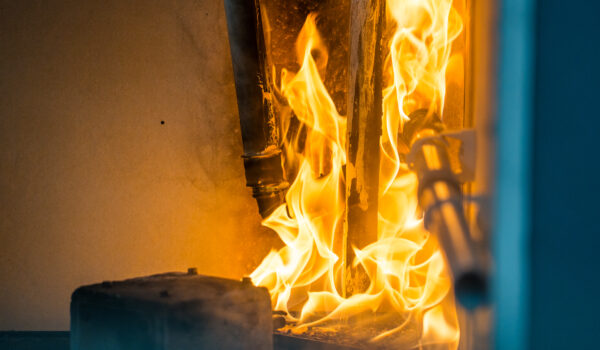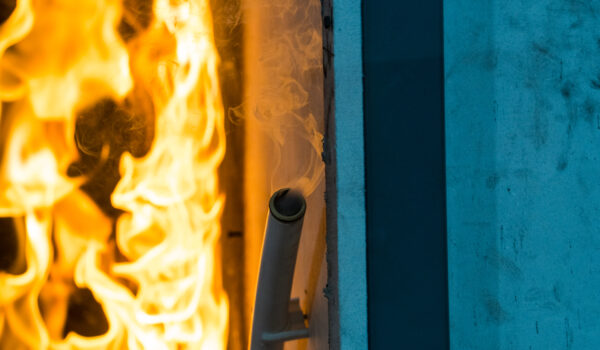On January 23, new fire safety regulations came into force across England, the latest in a long line of laws that have emerged following the Grenfell Tower Inquiry.
With its comprehensive review of cladding systems, the inquiry has drawn attention to the dangers of using combustible materials (specifically polyethylene) in building design.
Most of the regulatory changes that have followed focus on building exteriors, but there are also significant fire risks that lie within our homes and office spaces.
As with external cladding, it’s vital that building interiors are equipped with non-combustible materials like copper that will stand strong in the event of a fire.
Is copper flammable?
With a melting point of around 1,085°C, copper is not considered flammable and only presents a fire risk when in powder form. Besides its high melting point, which exceeds many other building materials like plastic and aluminium, copper has a number of unique properties that are favourable for fire safety.
Firstly, copper has a low thermal expansion coefficient, meaning copper pipes and copper wires expand only marginally when exposed to intense heat. The metal therefore does a better job of retaining its structure during a fire than materials with a higher thermal expansion such as plastic and aluminium.
In addition, copper offers excellent resistance to corrosion, making it suitable for use in fire sprinkler systems that carry and discharge water when a fire is detected. Finally, copper pipes are relatively flexible and easy to install in new buildings in line with the latest fire safety practices.
Learn more about copper’s impressive properties below.
How copper can help prevent the spread of fires
A key material in plumbing, construction and electronics, copper can be found in most modern buildings. The metal is often hidden behind walls, where copper pipes supply water and heat to taps and radiators. Copper wires are also found in electronic appliances like kettles and refrigerators.
When a fire breaks out, copper pipes and copper wires can be relied upon to prevent the spread of fire. This is because, unlike plastic and aluminium, copper has a higher melting point than the temperature of most building fires.
When the best installation practices are followed, the metal’s fire-resistant qualities are further enhanced, buying time for firefighters to arrive on the scene and the extinguish the blaze before it engulfs the building.
Depending on the chosen material of plumbing pipes and electrical wiring, these systems can encourage fires to spread quicker. Fortunately, with copper, this is not the case.
Learn more about the benefits of copper over plastic below.
How copper can help extinguish fires
Copper does not only help to reduce the risk of a fire spreading. It can also play an active role in extinguishing fires when used as part of fire sprinkler systems and copper powder fire extinguishers.
Copper fire sprinkler pipes
A wide range of buildings, including schools, hospitals and high-rise flats, are required to have fire sprinklers fitted. These systems are essential for reducing the loss of life and mitigating the damage caused by fires.
Malleable, lightweight and resistant to corrosion, copper has long been used for fire sprinkler pipework. The metal’s versatility makes it a great option for a wide range of settings, particularly in commercial buildings.
Copper powder fire extinguishers
Copper powder is considered the fire-extinguishing agent of choice for lithium fires. Once released, the powder smothers the fire by forming a hard crust on the burning lithium. The copper powder also sticks to vertical surfaces, enabling fire-fighters to safely put out fires that are on a wall.
Most lithium fires are caused by lithium-ion batteries, which are used in a wide range of electronic devices. These fires are likely to become more commonplace as electric vehicle adoption rates grow, increasing the need for copper powder fire extinguishers.
Learn more about the key role that copper powder plays in fighting lithium battery fires below.
Copper: the fire-fighting metal
Owing to its high melting point and low thermal expansion, copper is perfectly equipped to prevent the spread of fires. And as part of sprinkler systems and fire extinguishers, the metal can also help to extinguish fires.
To learn more about the many uses of copper, make sure to check out other news items or subscribe to our newsletter.

